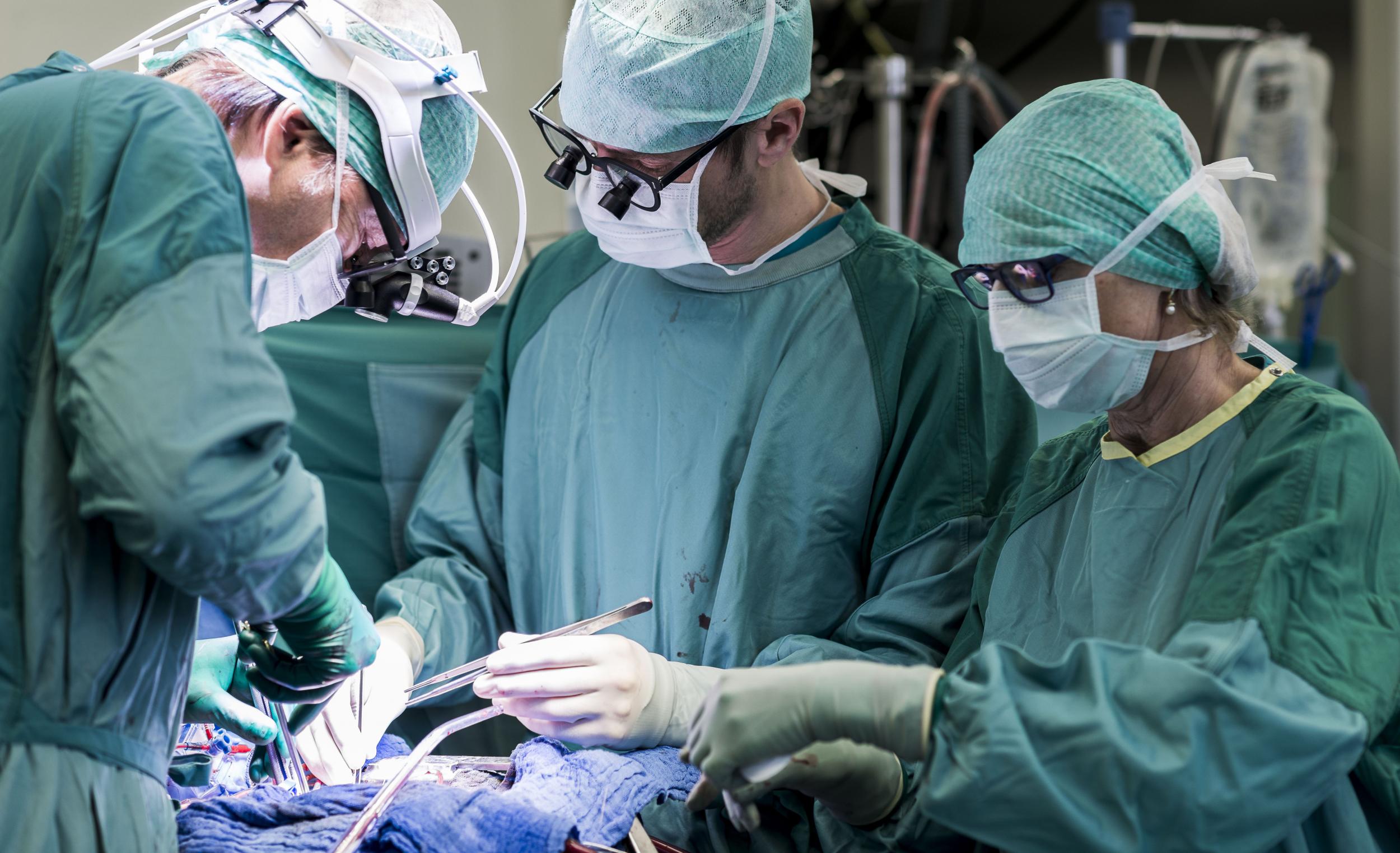Heart transplant waiting list nearly trebles because donors' relatives refuse to release loved ones' organs
More than half of families refuse to donate loved ones organs when they haven't made their wishes clear, British Heart Foundation says

On the 50th anniversary of the first heart transplant, charities have warned that the waiting list for a new heart in the UK has nearly trebled in a decade.
Since 2008, the number of people waiting for a new heart has increased 162 per cent, from 95 to 249 this year.
But the number of heart donations has not kept pace, with 127 donations in 2008 and 199 this year, an increase of 57 per cent.
The British Heart Foundation (BHF) has warned too many people are not relaying their wishes about becoming an organ donor when they die to their loved ones.
While eight out of 10 people say they support becoming an organ donor, only half say they have ever discussed this with the people they leave behind.
Even being a card carrying member of the organ donor register does not guarantee your organs will be passed on in the event of your death.
NHS Blood and Transport told The Independent that being on the register would likely make the decision legally enforceable against the family’s wishes, but in practise this does not happen.
This is largely a consideration to the grieving family, but also because the limited window for a transplant to take place means loved ones are the only people who can provide key lifestyle and medical information that might reveal whether a donor would be unsuitable.
In the last 50 years, heart transplantation has turned from a “fledgling procedure to a life-changing, life-saving operation”, according to BHF medical director, Professor Sir Nilesh Samani.
Success rates continue to grow and new avenues of “regenerative medicine”, to repair the heart without surgery, are being explored which could make transplants – and the waiting list – a thing of the past.
But that prospect is a long way off.
The Government is due to launch its consultation on moving England to a “soft opt-out” consent system for organ donation, which will assume everyone is a donor unless they expressly object, in the very near future.
The announcement was a key pillar of Prime Minister Theresa May’s speech at this year’s Conservative Party Conference, but was overshadowed by the events that immediately followed.
The change will see England follow the lead of Wales, where an opt-out system was introduced in 2015 and was credited with saving “dozens of lives” in its first few months.
But the soft opt-out is not legally enforceable, to prevent doctors removing organs in direct opposition of the family’s wishes.
The BHF said that more than half of families refuse to allow their dead loved one’s organs to be donated where they haven’t expressly said they want to become a donor.
So those on the waiting list want to make sure more people make it clear when they want to pass on their organs.
“It’s so sad,” says Vicky Small, 43, who is on the heart transplant waiting list after developing cardiomyopathy, a disease of the heart muscle.
“It’s also really frightening to think that I might never be lucky enough to receive a new heart because people are not having these uncomfortable, but vital, conversations with their loved ones.”
Simon Gillespie, Chief Executive of the British Heart Foundation, added: “Heart transplants can provide a lifeline for people with irreversibly diseased or damaged hearts. Initially thought of as laughably risky, the operation has developed over the last 50 years so that hundreds of successful heart transplants are carried out in the UK every year.
“But this is not enough. We need to give those waiting for a new heart the best chance of actually receiving a healthy organ. This will only happen if we start the conversations with our loved ones so that, if the situation arises, they will be able to honour our wishes and save a life.”
John Forsythe, NHS Blood and Transplant associate director of organ donation and transplantation said: “What was initially pioneering surgery has now turned into something that happens much more frequently with around 200 people receiving heart transplants in the UK each year.
“There is a still a severe shortage of donated organs of all kinds, and far too many people die without ever receiving the transplant they need. Organ donation saves lives and we urge people to join the NHS Organ Donor Register and talk to their families about their decision.”
Subscribe to Independent Premium to bookmark this article
Want to bookmark your favourite articles and stories to read or reference later? Start your Independent Premium subscription today.

Join our commenting forum
Join thought-provoking conversations, follow other Independent readers and see their replies